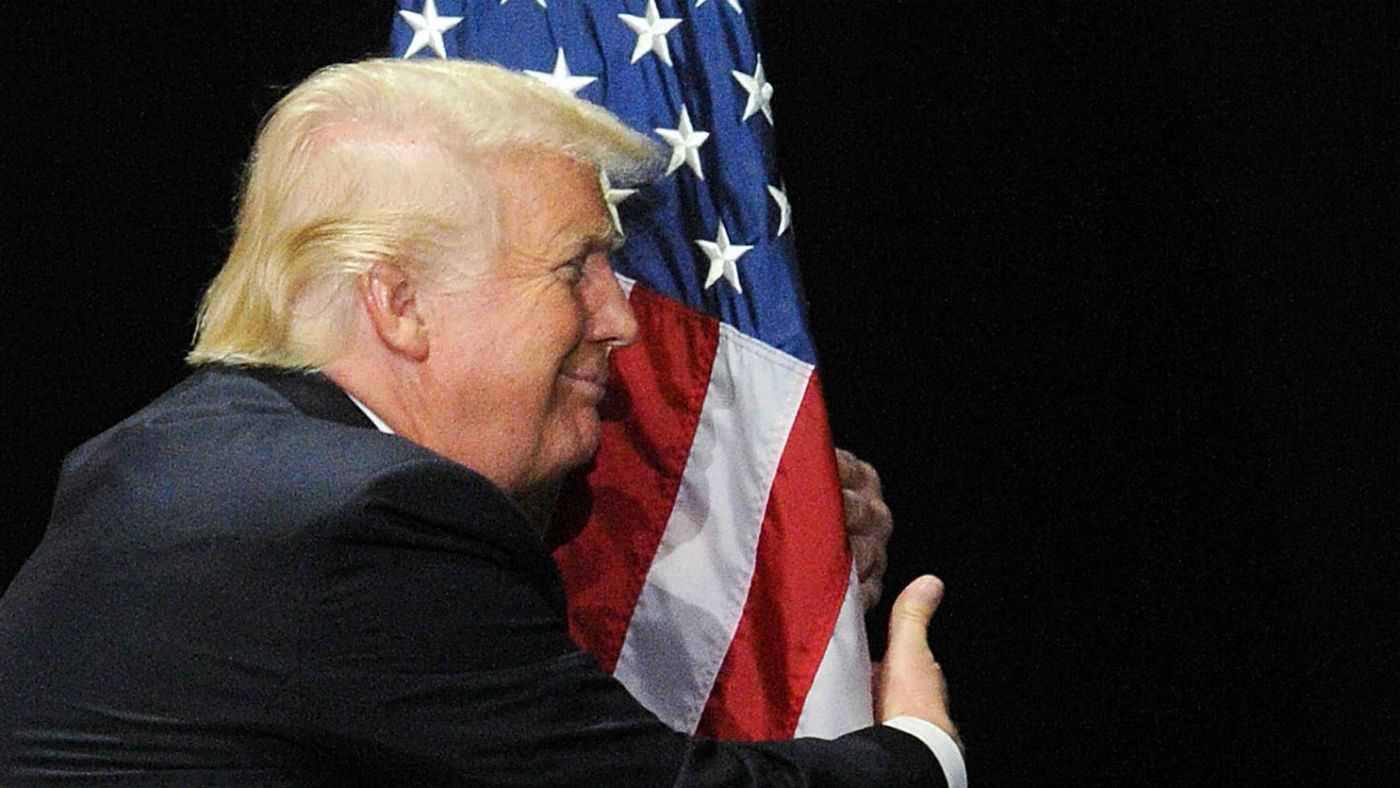US trade deficit jumps to ten-year high
Failure to deliver key policy pledge deals big blow to Donald Trump

A free daily email with the biggest news stories of the day – and the best features from TheWeek.com
You are now subscribed
Your newsletter sign-up was successful
The US trade deficit has jumped to a ten-year high, dealing a major blow to President Donald Trump as he prepares to kick-start his 2020 re-election campaign.
The US trade gap – the difference between how much it imports compared to how much it exports – ballooned to $621bn (£472.5bn) last year.
This is the widest it has been since 2008, when the global financial crisis plunged the US into recession, despite a pledge by Trump to make deficit reduction one of his key priorities.
The Week
Escape your echo chamber. Get the facts behind the news, plus analysis from multiple perspectives.

Sign up for The Week's Free Newsletters
From our morning news briefing to a weekly Good News Newsletter, get the best of The Week delivered directly to your inbox.
From our morning news briefing to a weekly Good News Newsletter, get the best of The Week delivered directly to your inbox.
“While most economists dismiss the trade deficit as a measure of the US economy's strength, President Donald Trump has made the reduction of the trade deficit a key benchmark for his year-long trade war,” says Business Insider.
The figure will prove particularly embarrassing for a president who has repeatedly called the deficit a “political and politician-made disaster” and claimed it could be “corrected”.
It has driven his “America First” protectionist economic policies, which have seen the US impose huge tariff hikes on billions of dollars on foreign goods, most notably steel and aluminium imports.
It was hoped that by making imports more expensive, more Americans would be dissuaded from buying foreign goods, so bringing down the deficit. “But the opposite has happened,” says Michelle Fleury, BBC North America business correspondent.
A free daily email with the biggest news stories of the day – and the best features from TheWeek.com
“Part of the problem is Trump’s own tax policies. They boosted US consumption and a lot of that spending went abroad,” she writes. “This happened as growth was slowing in other parts of the world, contributing to a rising dollar. That made US exports more expensive and less competitive.”
It has also had the knock-on effect of provoking a global trade war between the US and China, which threatens to derail an already slowing global economy, and which appears to be “backfiring”, says The Guardian.
“The data could emerge as a political vulnerability for Trump as he prepares for his 2020 re-election bid battling low approval ratings and a crowded field of Democratic contenders,” says the Financial Times, and “comes amid other signs of unease in the country’s industrial heartland about the effectiveness of Trump’s policies”.
Fleury adds: “Of course, an economic downturn would help reduce the trade deficit, but who wants that?”
-
 Why is the Trump administration talking about ‘Western civilization’?
Why is the Trump administration talking about ‘Western civilization’?Talking Points Rubio says Europe, US bonded by religion and ancestry
-
 Quentin Deranque: a student’s death energizes the French far right
Quentin Deranque: a student’s death energizes the French far rightIN THE SPOTLIGHT Reactions to the violent killing of an ultraconservative activist offer a glimpse at the culture wars roiling France ahead of next year’s elections.
-
 Secured vs. unsecured loans: how do they differ and which is better?
Secured vs. unsecured loans: how do they differ and which is better?the explainer They are distinguished by the level of risk and the inclusion of collateral
-
 Currencies: Why Trump wants a weak dollar
Currencies: Why Trump wants a weak dollarFeature The dollar has fallen 12% since Trump took office
-
 TikTok: New owners, same risks
TikTok: New owners, same risksFeature What are Larry Ellison’s plans for TikTok US?
-
 Trump wants a weaker dollar, but economists aren’t so sure
Trump wants a weaker dollar, but economists aren’t so sureTalking Points A weaker dollar can make imports more expensive but also boost gold
-
 Leadership: A conspicuous silence from CEOs
Leadership: A conspicuous silence from CEOsFeature CEOs were more vocal during Trump’s first term
-
 The end for central bank independence?
The end for central bank independence?The Explainer Trump’s war on the US Federal Reserve comes at a moment of global weakening in central bank authority
-
 Can Trump make single-family homes affordable by banning big investors?
Can Trump make single-family homes affordable by banning big investors?Talking Points Wall Street takes the blame
-
 Phish food for thought: Ben & Jerry’s political turmoil
Phish food for thought: Ben & Jerry’s political turmoilIn the Spotlight War of words over brand activism threatens to ‘overshadow’ the big ice cream deal
-
 What a rising gold price says about the global economy
What a rising gold price says about the global economyThe Explainer Institutions, central banks and speculators drive record surge amid ‘loss of trust’ in bond markets and US dollar